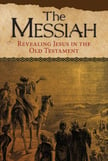The United States enjoys what is largely a free-market economy. Those entering and competing in the free-market economy vie for the attention of the consumer and do so, in part, with slogans or catchphrases designed to capture the attention. We hear or see examples of these slogans constantly on the radio, TV, and even in print magazines. One slogan that comes to mind is from Porsche. Summarized, the idea behind the slogan for Porsche is that this brand of car is so wonderful that there can be no substitute. If you want to drive a nice vehicle, it must be a Porsche.
Substitution is at the heart of this month’s reading from Genesis 22. In verse 2, the Lord commands Abraham,
Take your son, your only son Isaac, whom you love, and go to the land of Moriah, and offer him there as a burnt offering on one of the mountains of which I shall tell you.
This divine edict, certainly troubling to Abraham, offers a great deal of meaning. Keep in mind that Abraham and Sarah remained childless for decades. When the Lord provided Isaac, they were already advanced in years. They waited patiently for so long, and now the Lord would take Isaac away. The loss of Isaac would have been especially impactful for Sarah. As women had no means of supporting themselves, particularly in their advanced years, a son represented survival for Sarah.
Isaac and Jesus: Singular and Beloved
There are two other Bible verses that provide interesting comparisons to verse 2. The first is John 3:16:
For God so loved the world, that He gave His only Son, that whoever believes in Him should not perish but have eternal life.
In God’s command to Abraham, the Lord notes that Isaac is Abraham’s only son. Though Abraham had his son Ishmael through Sarah’s servant Hagar, God calls Isaac his “only son” because Isaac is the son God promised him through Sarah. In John, Jesus, speaking of Himself, highlights the fact that the Savior of the world is also an only son. The second is Matthew 3:17, when, at Jesus’ Baptism, the Father declares,
This is My beloved Son, with whom I am well pleased.
Taken together, we see that, like Isaac, Jesus is an only, beloved Son.
Law:
In verse 12 of the Genesis reading, doubtlessly much to Abraham’s relief, the Lord declares,
Do not lay your hand on the boy or do anything to him, for now I know that you fear God, seeing you have not withheld your son, your only son, from Me.
The Lord, in addition to again highlighting the singularity of Isaac, expresses satisfaction at Abraham’s commitment. God didn’t finally require Isaac’s life but simply Abraham’s willingness to offer it. This boils down to a First Commandment issue. In Exodus 20:3, the Lord demands,
You shall have no other gods before Me.
Abraham was required to place the Lord above even his own son Isaac. The application for readers is to recognize how regularly we place all sorts of things above God. When we withhold forgiveness from one who has sinned against us, we place our anger and vengeance above the Lord. When we share sensitive information that was given to us in confidence, we place the satisfaction of being viewed as “one in the know” above the Lord. When we steal from others through broken promises, lies, and theft, we place what we have stolen above the Lord.
Connecting to our current church season of Lent, it is also necessary to keep in mind the enormous price God paid for our salvation. There are at least three ways in which we diminish the grandeur of the Lord’s sacrifice in Jesus Christ. One is to reduce the ugliness of sin by considering our iniquities as mere mistakes or errors rather than recognizing they are wicked offenses against the righteous, almighty God—offenses which required the blood of His Son as payment. Another is to reduce the fullness of Jesus’ payment on the cross by attempting to complete His work with our merits or good works. A third is to wantonly indulge in sinful behavior, leaning on the free grace of God in Christ.
Gospel:
While the account of Abraham and Isaac is a lesson in willingness to place all things under the Lord, it is first and foremost an expression of the Lord’s glory and His mercy and grace to Abraham—and ultimately to all sinners. Verse 13 reads,
And Abraham lifted up his eyes and looked, and behold, behind him was a ram, caught in a thicket by his horns. And Abraham went and took the ram and offered it up as a burnt offering instead of his son.
It is important to note that God did not relent of His requirement of a sacrifice. Blood was to be spilled, but the Lord provided it. Our sin required blood, but the Lord provided His only, beloved Son, Jesus Christ, as our substitute. We are Isaac and Jesus is the ram caught in a thicket. The Lord prophetically connects this event involving Abraham and Isaac to the future redemption of the world in verse 18:
And in your offspring shall all the nations of the earth be blessed.
In His humanity, Jesus would descend from Abraham to be our Lord and Savior.
Christianity is unique in its substitutionary nature. Where all other belief systems and religions in the world offer mercy at the cost of obedience and self-sacrifice, the one, true God gives mercy at His own expense through the obedience and sacrifice of the final Substitute, Jesus Christ.
Scripture: ESV®.
 Learn more about how the Old Testament points forward to Jesus’ birth and sacrifice for humanity’s sins with a new Bible study.
Learn more about how the Old Testament points forward to Jesus’ birth and sacrifice for humanity’s sins with a new Bible study.












